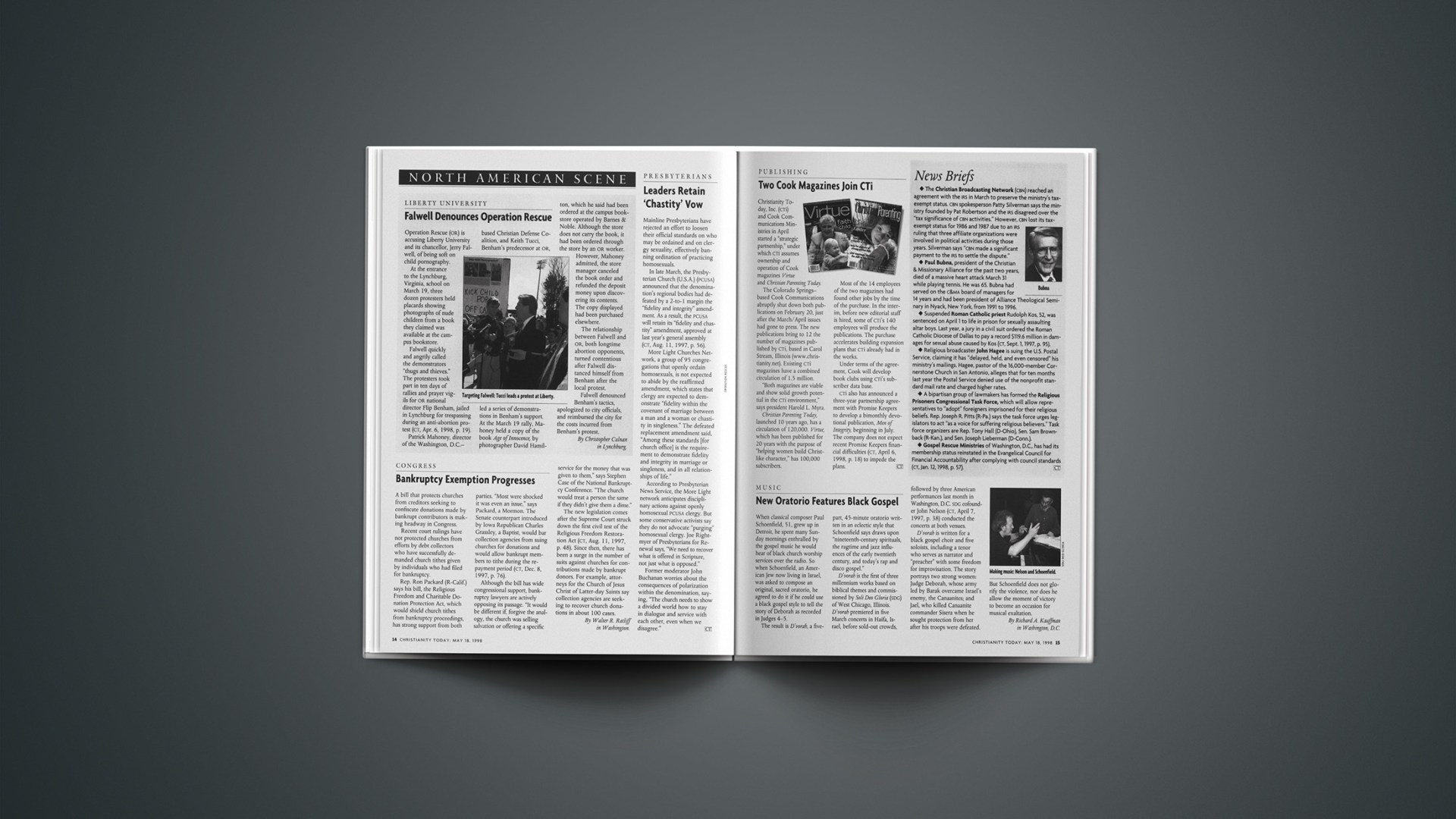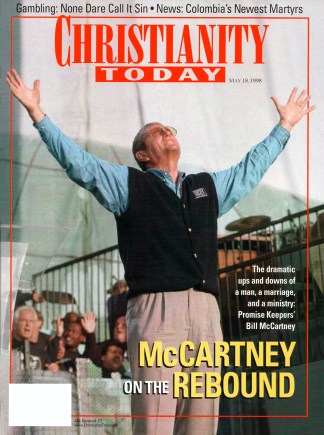When classical composer Paul Schoenfield, 51, grew up in Detroit, he spent many Sunday mornings enthralled by the gospel music he would hear of black church worship services over the radio. So when Schoenfield, an American Jew now living in Israel, was asked to compose an original, sacred oratorio, he agreed to do it if he could use a black gospel style to tell the story of Deborah as recorded in Judges 4-5.
The result is D’vorah, a five-part, 45-minute oratorio written in an eclectic style that Schoenfield says draws upon “nineteenth-century spirituals, the ragtime and jazz influences of the early twentieth century, and today’s rap and disco gospel.”
D’vorah is the first of three millennium works based on biblical themes and commissioned by Soli Deo Gloria (SDG) of West Chicago, Illinois. D’vorah premiered in five March concerts in Haifa, Israel, before sold-out crowds, followed by three American performances last month in Washington, D.C. SDG cofounder John Nelson (CT, April 7, 1997, p. 38) conducted the concerts at both venues.
D’vorah is written for a black gospel choir and five soloists, including a tenor who serves as narrator and “preacher” with some freedom for improvisation. The story portrays two strong women: Judge Deborah, whose army led by Barak overcame Israel’s enemy, the Canaanites; and Jael, who killed Canaanite commander Sisera when he sought protection from her after his troops were defeated. But Schoenfield does not glorify the violence, nor does he allow the moment of victory to become an occasion for musical exaltation.
Copyright © 1998 Christianity Today. Click for reprint information.










